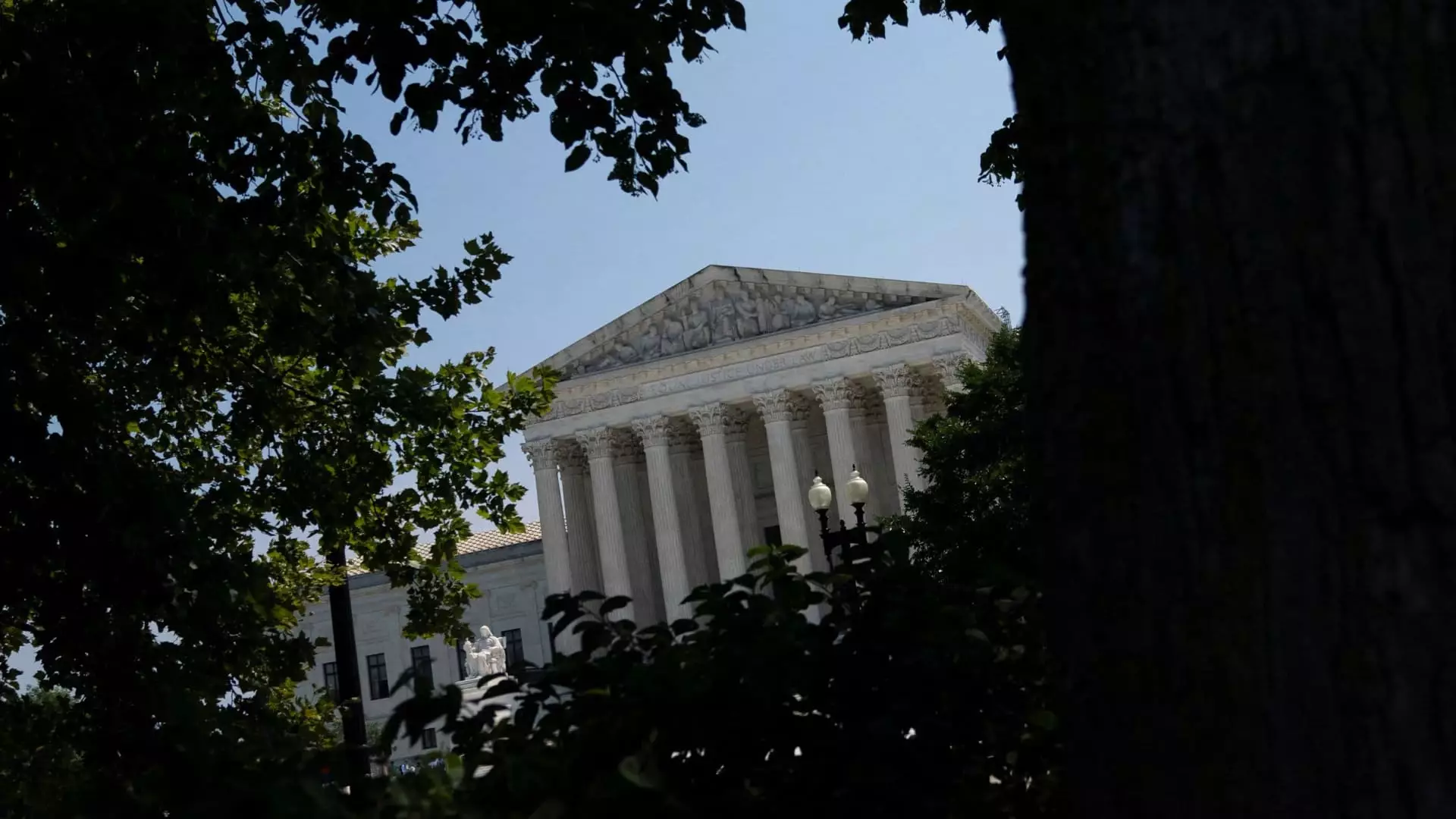On Thursday, the United States Supreme Court intervened to uphold the enforcement of a critical federal law aimed at combating money laundering, known as the Corporate Transparency Act (CTA). This legislation mandates that corporate entities disclose the identities of their true beneficial owners to the Treasury Department’s Financial Crimes Enforcement Network (FinCEN). In a significant move, the justices halted a nationwide injunction that had been set in motion by a Texas federal judge, who had previously ruled that Congress had exceeded its constitutional powers in enacting the CTA. This decision underscores the contentious debate surrounding transparency laws and their implications for small businesses.
The CTA has faced legal challenges from small business advocates, notably the National Federation of Independent Business, which claims the law imposes undue burdens. Critics argue that the law could stifle small business growth and impose significant compliance costs, impacting entities that are already working within tight financial margins. The Texas judge, Amos Mazzant, supported these concerns, labeling the CTA as a “quasi-Orwellian statute” that overreaches into the rights reserved to states under the Tenth Amendment. His arguments echoed a broader skepticism among certain conservative factions regarding federal intervention in the operations of small businesses.
However, it’s crucial to analyze the substance of such claims. Supporters of the CTA, including the Biden administration, argue that the law is vital in addressing illegal financial activities that have increasingly found their way into the U.S. economy. By requiring disclosures, the intent is not only to protect legitimate businesses but also to curtail the criminal enterprises that exploit loopholes and lack of transparency.
The Biden administration has strongly advocated for the law, presenting a compelling case pointing to its role in enhancing governmental capacities to detect and prevent financial crimes, such as money laundering, tax evasion, and even terrorism financing. Solicitor General Elizabeth Prelogar emphasized that the reporting requirements serve as crucial mechanisms for the government to safeguard the financial system. She described the measure as an essential tool in the fight against illicit financial flows that capitalize on the relative anonymity provided by certain business structures like limited liability companies (LLCs).
The administration’s argument rests on the Constitution’s Commerce Clause, which grants Congress the power to regulate economic activities that cross state lines. By framing the issue through this lens, Prelogar suggested that Judge Mazzant’s ruling was overly simplistic and disregarded the necessity of Congressional authority in safeguarding national economic integrity.
This legal battle occurs within a broader context of increasing scrutiny over financial practices and transparency in the United States. The CTA is part of a larger trend toward tightening regulations in the wake of numerous high-profile financial scandals that have spotlighted the ease with which illicit funds can be funneled through corporate entities. Critics of lax regulations argue that without stringent reporting requirements, the U.S. remains an attractive hub for international money laundering operations. This perspective has gained traction among lawmakers and financial regulators who advocate for more robust oversight measures.
Consequently, the Supreme Court’s decision to stay the injunction signals a pivotal moment for the CTA’s implementation, reflecting a commitment to transparency in corporate governance. As the Court reaffirms the validity of the law, it also sets a significant precedent in the ongoing battle between small business interests and regulatory oversight.
As the landscape of corporate regulation evolves, finding a balance between protecting small businesses and ensuring financial transparency will remain a crucial challenge. The Supreme Court’s involvement in this matter emphasizes the complexities of governance in an era where economic crimes can have profound ramifications for society. Moving forward, it will be essential for lawmakers to consider not only the legal implications of the CTA but also the practical realities faced by small businesses. The outcome of this legal dispute will undoubtedly shape the future of corporate transparency and potentially redefine the relationship between the federal government and small enterprises across the nation.

